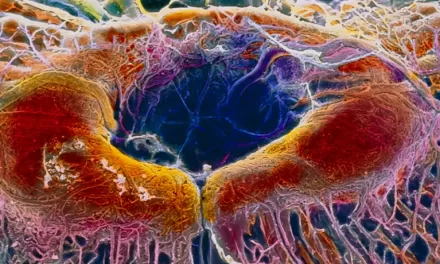
In a recent study published in Microbiology Spectrum, researchers have shown that the consumption of flaxseed can potentially alter gut bacteria, consequently reducing the risk of breast cancer, a particularly lethal form of cancer.
The investigation focused on flaxseed’s components, known as lignans, which were observed to influence the interplay between gut microbes and the expression of microRNAs (miRNAs) in the mammary gland. Certain miRNAs have control over genes associated with breast cancer, including those regulating cell growth and movement.
Jennifer Auchtung, Assistant Professor in the Food Science and Technology Department at the University of Nebraska-Lincoln, emphasized the significant role of gut microbiota in shaping the impact of dietary elements on human health. The study revealed correlations between diets enriched in flaxseed, the composition of gut microbes, and miRNA profiles in the mammary gland, affecting pathways linked to cancer development. Auchtung stressed the need for further research into the microbiota’s role in dietary strategies to mitigate disease risks.
The research team examined how flaxseed lignans affected the microbiota of young female mice. Lignans, found abundantly in flaxseed, are known fiber-associated compounds linked to decreased breast cancer mortality in post-menopausal women.
Their findings indicated that lignan components triggered specific miRNA responses in the mammary gland. MiRNAs, short RNA molecules, regulate gene expression by targeting specific regions of target mRNAs.
The researchers explored whether altering the microbiota-mammary gland miRNA relationship with flaxseed lignans could reduce breast cancer risk. They fed female mice flaxseed lignan components to analyze potential links between gut cecal microbiota profiles and miRNA expression in the mammary gland.
The cecum, situated in the lower right abdomen, plays a role in producing short-chain fatty acids and harbors anaerobic bacteria. Flaxseed oil lignans, requiring microbial processing to release active compounds with anti-tumor effects, were found to influence the microbiota and mammary gland miRNA in a manner that did not promote cancer.
Elena M. Comelli, Associate Professor in the Department of Nutritional Sciences and the Temerty Faculty of Medicine at the University of Toronto, highlighted the potential of targeting the microbiota through dietary intervention to prevent breast cancer, pending further confirmation of these findings.











